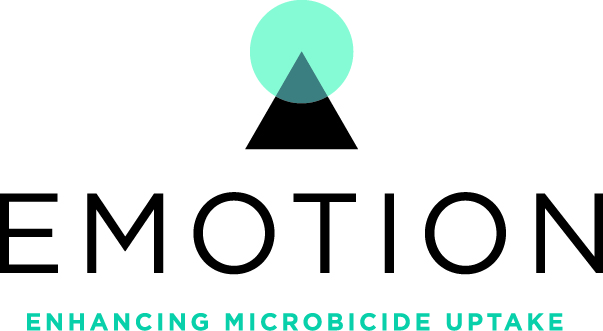EMOTION increases uptake and correct and consistent use of ARV-based HIV prevention products by women at high risk of HIV infection using an end-user centered strategy.
Human-centered design research completed. Project Kalahari (human-centered design research (HCD)) is focused on women who are at the highest risk of HIV, as defined by USAID/PEPFAR guidelines, and their circle of influencers including family, friends, male partners, and health care providers (HCPs). Kalahari is composed of two major phases: Kalahari I and II. Kalahari I is focused on conducting in-depth interviews (IDIs) in South Africa, obtaining feedback for eight PrEP products, synthesizing insights and design principles, and designing two preliminary products. Kalahari II is focused on design iteration based on findings from Kalahari I to deliver final recommendations for the selected products, packaging, brand, and experience blueprint. Ultimately, brand, packaging and communication materials designed in Kalahari for two selected products will be manufactured for quantitative socio-behavioral (SB) testing.
By September 2016, both phases of Kalahari were completed to lay out the foundation of EMOTION. Final recommendations have been synthesized for refining product attributes, packaging, messaging, and branding approaches based on end-user input and HCD principles. Brand values, naming, visual direction, graphic elements, color palette, and typography were also determined. An experience blueprint with system elements for a successful MDP (minimum desirable product) launch has been developed. Additionally, EMOTION compiled and shared its findings from Kalahari with Dalberg, which is conducting a HCD study of vaginal rings with IPM.
Pilot marketing study underway. Project Siyavala, the pilot marketing study, will test messaging developed from Kalahari in a variety of contexts along the user journey. Siyavala was kicked off in October 2016, and the field research began in early November in Johannesburg, Cape Town, and KwaZulu-Natal and will continue through the end of November. Messages tailored to inform HCPs, nurses, and pharmacists were developed. Siyavala uses controlled market behavior simulation methodology and will interact with more than 200 participants, including women, men, dating couples, and HCPs.
No Responses
Leave a Reply

